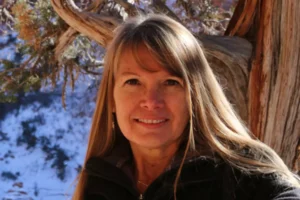We were finally old enough to vote, and our first time to the polls was for a critical presidential election. It was an uncertain and deeply tumultuous time for America. We had a president in his first term who inherited an economy that was deeply in the toilet and facing very serious conflicts in the Middle East. Many in the nation thought this man was over his head and not up for the job. Our nation had a big and consequential decision to make.
I was pretty sure who I was voting for. My best buddy, Tommy, had made up his mind as well. He was not going to be forced — and therefore refused — to “vote for the lesser of two evils” as he put it. This election was between President Jimmy Carter and his challenger Ronald Reagan. (Yes, I am that old!)
I remembered his comment for many years because it sounded deep with conviction and idealism. But as the years have passed and I’ve gained some experience working in public policy, social issues, and consulting for one presidential administration, I have come to think differently about my friend’s decision.
To refuse to vote in an important national election — or any election for that matter — because we feel that neither choice is satisfying is to fail to understand the nature of politics. First, we must know that politics is unavoidable. It’s found wherever two, three or more people share life together in any meaningful way. Politics is nothing more than the advocacy, negotiation of and deciding on the best actions and opportunities between individuals or groups. By its nature, it’s seldom the choice between two very good options or two absolute right or wrong options. This is what makes politics so difficult. It makes our brains hurt, and we would rather not mess with it. But this is precisely why we must. Our form of government depends on good citizens not shying away from the complicated issues and choices because they are complicated.
But in another way it’s not so complicated. Which choice represents your most important convictions the best? Which choice would most effectively block the advancement of the ideals and actions you find most morally harmful? These are the two biggest questions we must make every time we have the privilege and remarkable power to vote. And very few political alternatives we face in this nation box us in so that we cannot find the slightest moral imperative for voting for one over another. Therefore, failing to cast a vote is very much a vote for the thing you don’t like. And in the rare case that you, after much serious reflection, simply cannot vote for some particular option, then gather a group of fellow citizens and do what you can to make sure that better, just options become available to voters. Our government is just as much yours as anyone else’s.
You see, because politics is all about the affairs of a group of people, be it a nation, a state, a community or the local garden club, it not only contains imperfection, but is necessary because imperfection is always a part of the realistic choices at stake.
Consider the issue of abortion. Both pro-lifers and abortion advocates are pretty set on their strong and deeply held convictions. But folks on both sides who want to strategically advance their cause often get in trouble with the idealists among them. Example: When pro-lifers push for bans on partial-birth abortion, they get castigated by some of their pro-life neighbors because to push for this specific ban implies that early- or mid-terms abortions are not worth going after. “Don’t those babies deserve protection?” they ask. It is the same with the “pro-choice” forces when their peers are willing to vote for things like parental notification or informed consent for abortion-minded mothers. They get denounced for contributing to the dangerous slide down the slippery slope toward the erosion of legal abortion. Idealists are only helpful from the side-lines of politics.
Politics — making a wise choice of voting in line with your convictions and values — is precisely about making the best choice among the options you have before you. It is fundamentally about making strategic and wise compromises. There has never been a perfect or even nearly perfect candidate — even the one I voted for in my first vote. And the most important things that demand our vote are usually those that are most controversial. If you sit out voting on the highly and clearly moral “all children should be loved” bill, no biggie. It is sure that bill will pass unanimously without you. But most laws are less clear cut. They demand our careful study, weighing the pros and cons, considering the implications of both, and casting our vote for the option that you think best promotes community well-being or hinders the passage of a bill or candidate’s victory that you believe will harm it.
That’s politics. And sitting out an election because a law or candidate comes up short in important ways is to fail to understand the fundamental essence of what voting is about.










